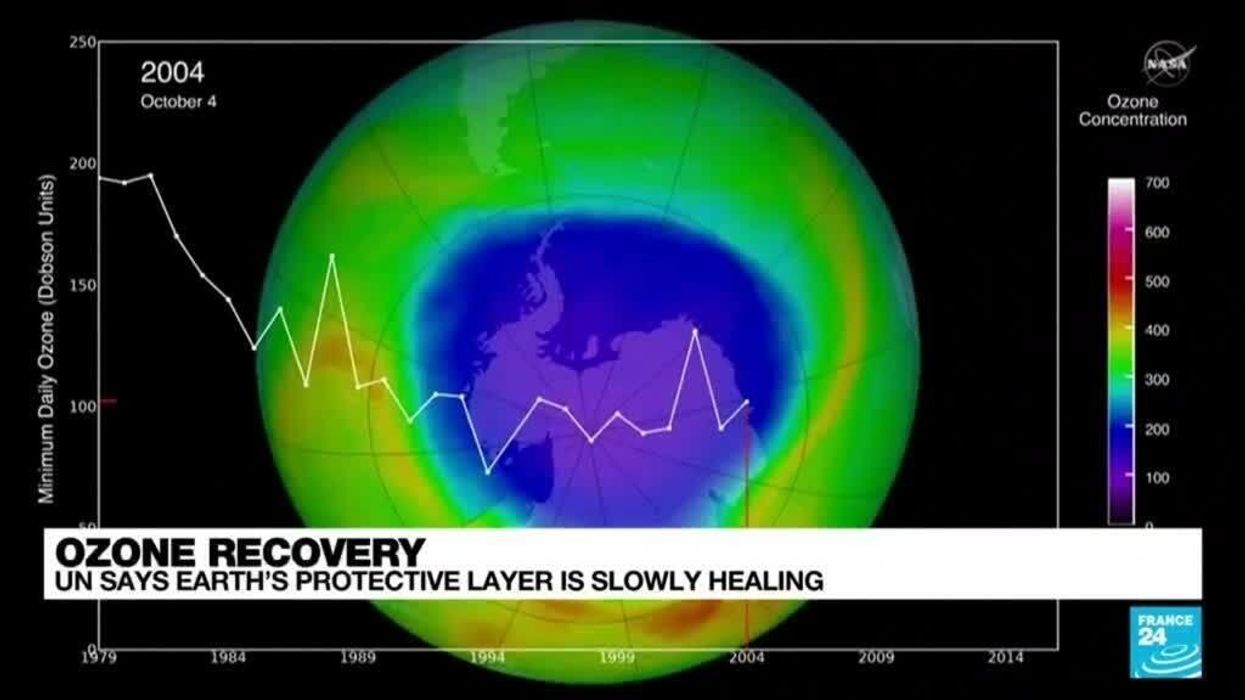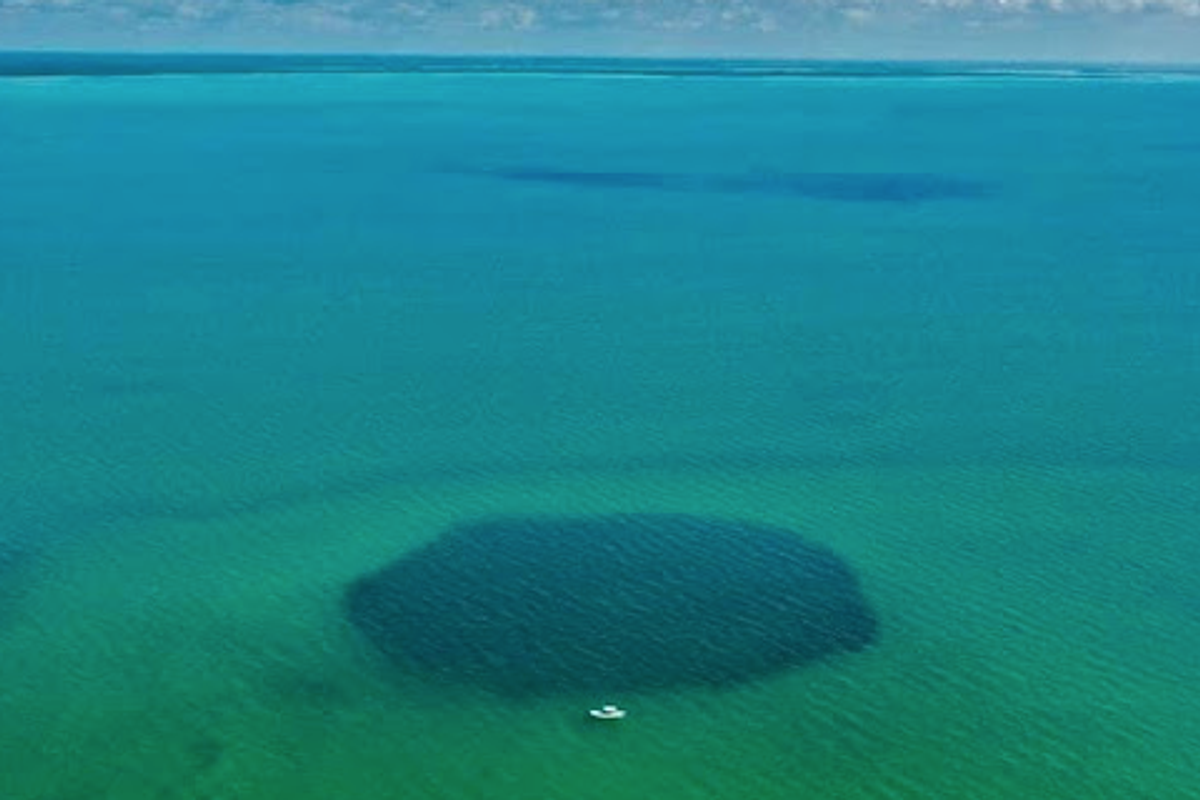Becca Monaghan
Sep 19, 2024
Ozone layer slowly healing, may be restored within decades, says UN
FMM - F24 Video Clips / VideoElephant
Scientists have revealed that the ozone layer could be on track for a full recovery by 2066, after an ozone hole over Antarctica was shown to be small in size and healthy.
However, the ozone hole has been linked to stratospheric warming, according to IFL Science, which has resulted in hot temperatures around the South Pole.
The ozone layer measures around 15 to 30 kilometres (9.3 to 18.6 miles) above Earth's surface. It acts as a protectant and absorbs some of the sun's damaging UV rays. By the 80s, scientists were aware of a hole created by human-made chemical compounds that contain carbon, chlorine, and fluorine, known as chlorofluorocarbons (CFCs).
The latest results have been rather positive overall, hinting the ozone could make a full recovery to 1980 levels by around 2066 over the Antarctic and by 2040 for the rest of the world.
In a statement, UN Secretary-General António Guterres announced: "At a time when multilateralism is under severe strain, the Montreal Protocol stands out as a symbol of hope. The ozone layer, once an ailing patient, is on the road to recovery. When countries show political resolve for the common good, change is possible."
Laurence Rouil, Director of the CAMS at the European Centre for Medium-Range Weather Forecasts, added: “From volcanoes to climate change, there are a myriad of factors that play a role, directly or indirectly, in the formation of the Antarctic ozone hole. Nonetheless, none of them are as impactful as the anthropogenic ozone-depleting substances. The Montreal Protocol and subsequent amendments have created enough space for the ozone layer to begin healing, and we can expect further signs of recovery to be visible in the next forty years."
He went on to share that "humanity is capable, through international cooperation and science-based decision-making, to transform our impact on the planet's atmosphere".
How to join the indy100's free WhatsApp channel
Sign up for our free Indy100 weekly newsletter
Have your say in our news democracy. Click the upvote icon at the top of the page to help raise this article through the indy100 rankings.
Top 100
The Conversation (0)














